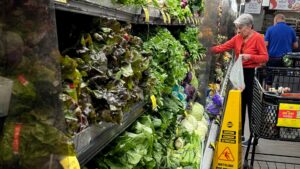At Extreme Investor Network, we are always on the lookout for the latest trends and information in the world of personal finance. Today, we are diving into the latest news on inflation and how it impacts your financial decisions.
Inflation, a key determinant of price changes in the economy, has been on a retreat in recent months. The consumer price index (CPI) rose by 2.9% in July from a year ago, marking the lowest reading since March 2021. This decline has been attributed to easing price pressures on consumer staples like food and energy, as well as on physical goods such as new and used cars.
Mark Zandi, chief economist of Moody’s, described the current inflation rate as being “right down the strike zone.” He highlighted the slow growth of inflation for groceries, which is good news for consumers. Additionally, positive trends in other necessities like gasoline and market rents indicate encouraging news for lower-income consumers.
The Federal Reserve uses inflation data to shape its interest rate policy. With inflation nearing policymakers’ long-term target of around 2%, experts believe that the worst of inflation may be behind us. This positive outlook on inflation, combined with a cooling labor market, may signal a potential interest rate cut by the Fed in their next policy meeting.
One major factor contributing to elevated inflation rates is housing, particularly the shelter index. Shelter inflation has been on the rise, accounting for more than 70% of the annual increase in the core CPI. While housing inflation moves slowly, real-time rental market data shows a flatlining trend, suggesting a positive outlook if shelter costs are excluded.
In addition to housing, other notable categories experiencing inflation include motor vehicle insurance, medical care, personal care, and recreation. Prices in these categories have seen notable increases over the past year. New and used car price surges from previous years are now impacting car insurance premiums and vehicle repair costs.
Overall, inflation for physical goods spiked as the economy reopened in 2021 due to disruptions in supply chains. However, goods inflation has now normalized, while the services sector remains a challenge. Experts believe that services inflation, driven by labor costs, is likely to ease due to a slackening job market and declining wage growth.
At Extreme Investor Network, we understand the importance of staying informed about economic trends and how they influence your financial decisions. Stay tuned for more expert insights and analysis on personal finance to help you navigate the ever-changing financial landscape.

